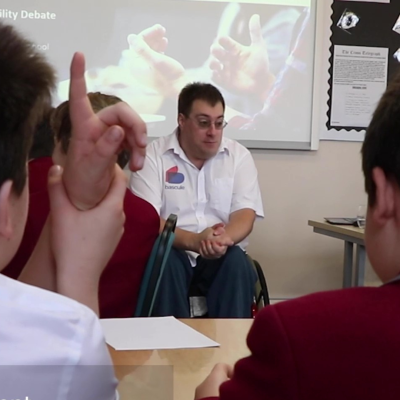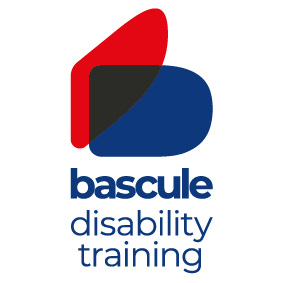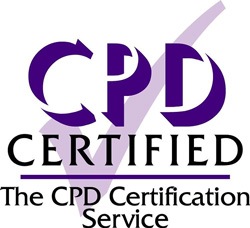Why developing disability awareness should begin at school

Negative attitudes towards disability, are sadly all too common. If you weren’t aware of that, or you need convincing, here are some stats we at Bascule, commonly recite:
Three out of four people with disabilities (72%) said they have experienced negative attitudes or behaviour in the last five years- and nine out of ten said it had a negative effect on their daily lives.
Need more?
One in three people see those with disabilities as being less productive.
53% of workers with disabilities have been bullied or harassed in the workplace because of their impairments.
30% of workers with disabilities said that people have made negative assumptions about their competence.
Sadly- I could go on, as there is an ever-growing abundance of similar statistics to prop up the fact that, many people simply have a negative perception of disability.
At Bascule we provide the training required to change this by offering workforces the opportunity become more disability aware in the workplace. But my question is, would this work be as necessary if we created positive perceptions of difference before we enter the workplace?
We all know that as human beings, we have an instinct to notice difference, and this is deeply rooted in our evolutionary history, helping us to identify potential threats, form social groups, and adapt to certain environments. However, without education, understanding, experience, knowledge (and the development of empathy)- this instinct to read differences could easily translate into negative attitudes, awkwardness or a fear of disability.
Early awareness
Schools play a pivotal role in shaping disability awareness and developing positive perceptions, which is why I have been visiting them for nearly 20 years, providing activity days, hosting debates and discussions and most importantly, conversing with young people about my life and answering their questions about disability.
The impact of this work is incredibly powerful. You would be surprised how intrigued children become once they realise, they are in a safe space and can candidly ask someone with a disability anything they want – and believe me, they do!
Showing a short video of how I get in, start and drive my car, never fails to capture the attention of all children in the room. These moments of consideration, contemplation and understanding through direct interaction with a person with a disability, is precious and you can visibly see young minds pausing to contemplate the concept of disability.
As well as seeing this happen, there have also been a number of studies conducted on the improvement of children’s attitudes towards disabilities, that have proven that direct interaction is the most effective way to do this, and that increased contact with people with disabilities is associated with more positive attitudes towards disability.
The results of awareness through direct interactions have also proven to have an immediate impact on relationships with peers. A study published in the Journal of Educational Psychology found that, after disability awareness programs, 80% of students reported more positive attitudes toward peers with disabilities.
Whenever I visit schools, I also offer suggestions for ways in which teachers can continue to educate students and bring awareness to the curriculum, helping to deconstruct any stereotypes, negative attitudes and prejudices that might exist, or learnt in the future. We are also in the process of developing awareness resources that can be easily implemented into the curriculum of all year groups.
Another way we ensure young minds are positively influenced is by educating all school staff so that inclusivity becomes embedded into the school’s ethos. Staff are then better equipped to teach pupils with disabilities, environments become more inclusive, and disability is something young people begin to consider.
Helping schools by working with Bascule
Of course, we all know that schools face many budgetary restraints, which is why Bascule provides awareness programmes for state schools free of charge. We use 75% of our proceeds to fund the awareness days, which means that any business working with us, paves the way for the upcoming generation.
In many cases, we are even able to source a school near the clients we are working with, meaning the services we provide have a direct impact on their local community.
We believe schools, and the young minds of the next generation are instrumental in driving societal change, and the way in which we perceive disability. Our hope is that, by bringing awareness to young people now, some of those statistics at the start of the article may begin to change, and in the future, our training for adults will not be as critical.
CHRIS JAY, MANAGING DIRECTOR, BASCULE DISABILITY TRAINING
If you are a business or organisation, and would like to find out more about our services click here.
If you are a school and would like to know more about our awareness days, click here.
To speak to a staff member at Bascule Disability Training – call 0330 3800662 or email info@bascule.com



